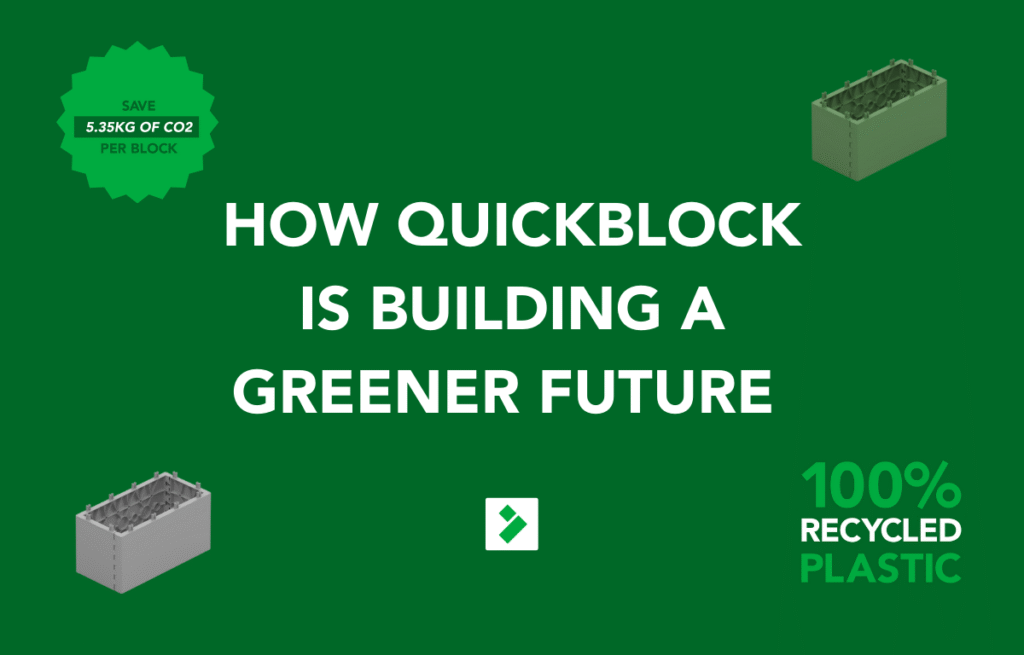When you think of building materials, you probably picture concrete, steel and brick, all heavy, traditional options with a high environmental cost. Concrete and cement alone are responsible for more than 7% of global CO₂ emissions, while construction waste contributes up to 30% of solid waste landfill worldwide.
At QUICKBLOCK, we believe there is a better way. By rethinking materials through the principles of the circular economy, we’re creating modular building solutions that are strong, practical and kinder to the planet.
WHAT MAKES QUICKBLOCK DIFFERENT FROM TRADITIONAL BUILDING MATERIALS?
Traditional materials like concrete are heavy, energy-intensive and difficult to recycle. QUICKBLOCK flips the script by using recycled plastics and other waste streams to create versatile, reusable building blocks.
Our flagship product, the polypropylene block, is made entirely from 100% recycled plastic, transforming discarded items like yoghurt pots, fridge components and even the waste from the manufacturing process of new plastic bank notes into durable building materials. Choosing QUICKBLOCK instead of a traditional breeze block saves more than 5 kilograms of CO₂ per block.
Learn more about our products here.
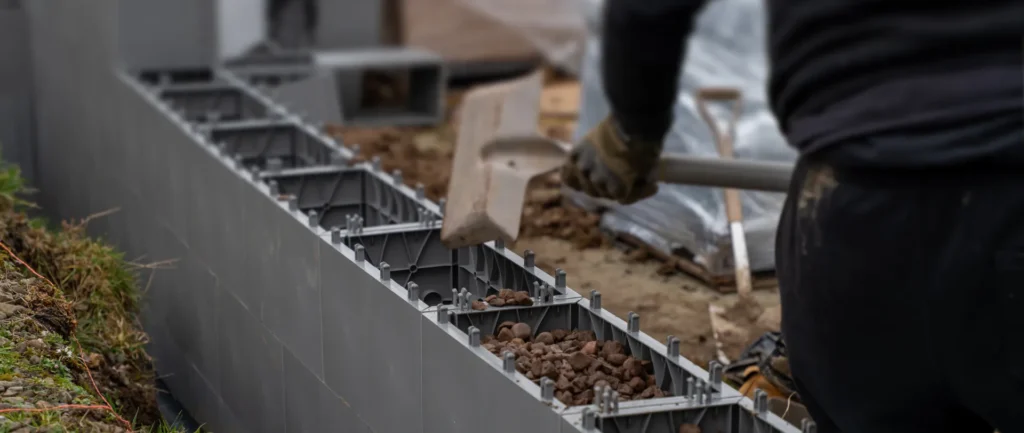
HOW DOES QUICKBLOCK TURN WASTE INTO BUILDING BLOCKS?
We start with waste and reimagine it as something useful:
- QUICKBLOCK – Made from 100% recycled polypropylene.
- QUICKBLOCK Rubber Blocks – 90% recycled tyres, giving a second life to one of the most challenging waste streams globally.
- QUICKBLOCK Shelter Roof Panels – Produced from recycled ABS sheets (50% recycled content), shaped using vacuum forming powered by renewable energy.
- QUICKBLOCK Shelter Windows – Combining recycled ABS with recyclable acrylic panes for strength and clarity, also vacuum formed powered by renewable energy
Every QUICKBLOCK product is designed to be reused, repurposed and recycled, never single-use. See how we’re building greener here.
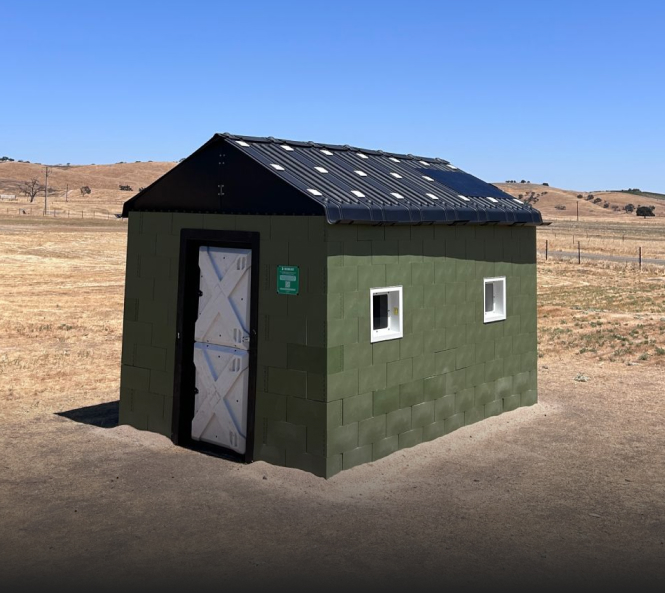
HOW IS QUICKBLOCK MANUFACTURED SUSTAINABLY?
Sustainability isn’t just about the materials we use, it’s about how they’re made. We partner with manufacturers who share our commitment to clean, circular production:
- Plastech operates from a site powered by a 400 kWh solar farm, recycles all off-cuts and runs a fleet of fully electric vehicles.
- Tire Conversion Technologies (TCT) specialises in tyre crumb processing in the US and Europe. Independent studies show TCT’s recycled tyre products have a significantly lower CO₂ footprint than virgin EPDM rubber across 13 of 16 environmental measures.
By focusing on sustainable manufacturing, we’re reducing energy use, cutting waste and minimising emissions across every QUICKBLOCK product line.
Read more about our sustainability approach.
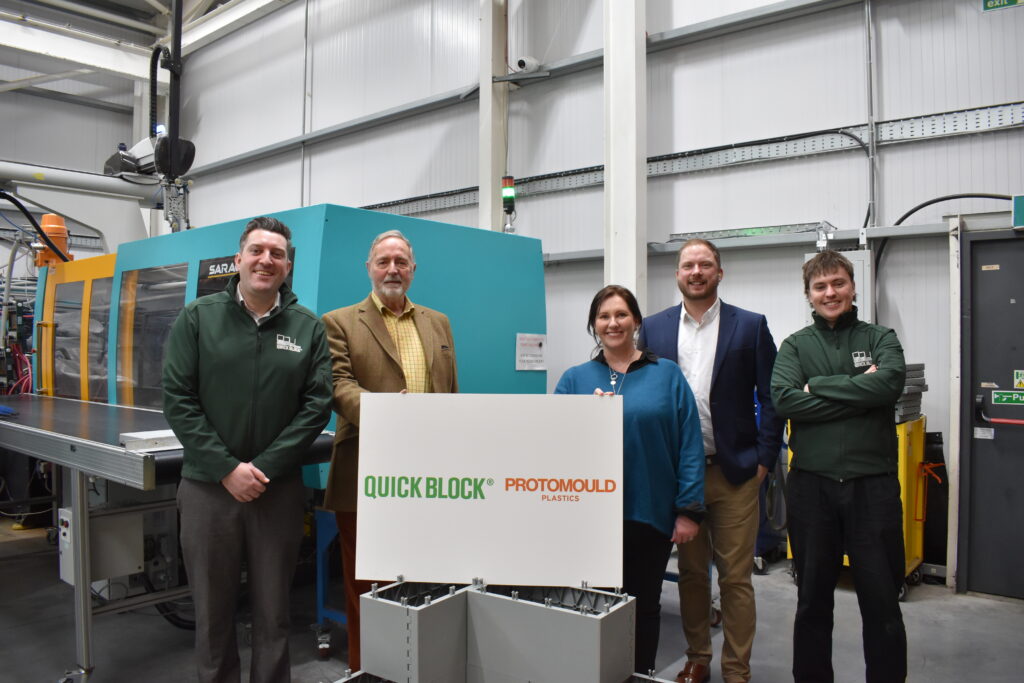
HOW DOES QUICKBLOCK MINIMISE CARBON IN TRANSPORTATION?
Transport is one of the most carbon-intensive parts of any product’s lifecycle. That’s why we work with Palletline, a logistics partner committed to efficiency and sustainability.
Using a multi-hub model, Palletline saves around 4.5 million unnecessary road miles each year, avoiding approximately 7.5 tonnes of CO₂ emissions annually. Their vehicles operate at an average of 71% capacity compared to the industry’s 51%, taking about 800 trucks off UK roads every year.
With over 95 depots across the UK and Ireland, QUICKBLOCK products reach customers faster and with a much lower environmental cost. In fact, it is 8 tomes more efficient than transporting breeze blocks!
WHERE IS QUICKBLOCK MAKING AN IMPACT IN THE REAL WORLD?
QUICKBLOCK isn’t just about materials, it’s about impact:
- Defence and Security Training – Used by the UK’s 12th Armoured Brigade and Infantry Battle School to create realistic urban training environments. West Midlands Police deploy QUICKBLOCK systems for public order training scenarios.
- Humanitarian Aid – The QUICKBLOCK Shelter is a turnkey solution currently in development. Constructed entirely from QUICKBLOCK with custom roof, window and door systems, it is designed for rapid deployment before, during or after emergencies.
- Community and Commercial Projects – From temporary classrooms to event infrastructure, QUICKBLOCK systems enable responsible, flexible construction.
Explore more about using QUICKBLOCK in your own projects.
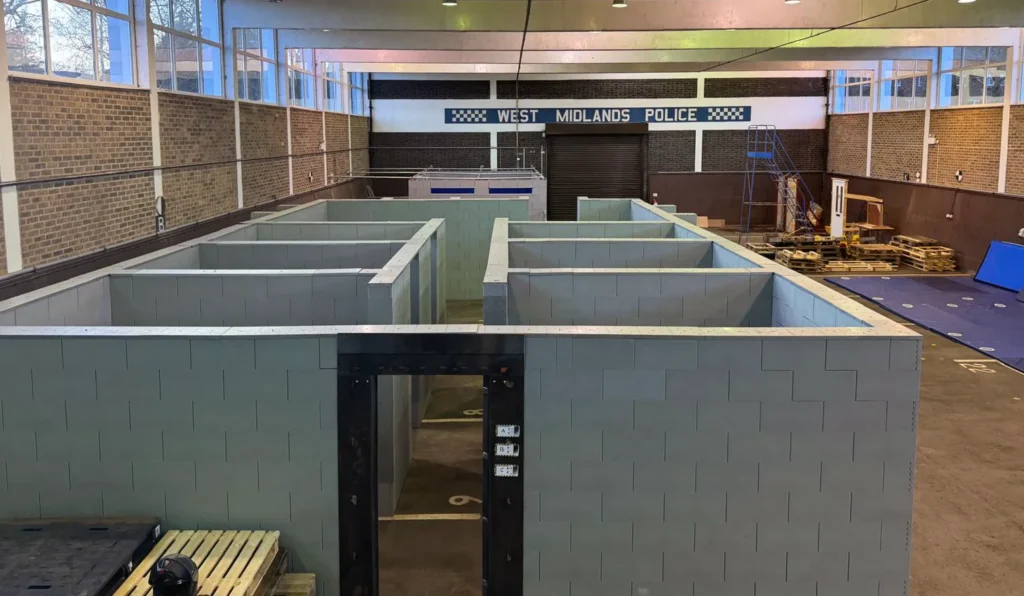
WHAT HAPPENS TO QUICKBLOCK PRODUCTS AT THE END OF THEIR LIFE?
End-of-life is often the hardest sustainability challenge, but QUICKBLOCK products are designed for circularity:
- Polypropylene Blocks – Fully recyclable into granules with minimal quality loss.
- Rubber Blocks – Recyclable three to six times before repurposing into long-life infrastructure such as asphalt and concrete.
- Windows – ABS and acrylic can be recycled separately; acrylic is ideal for advanced chemical recycling.
- Roofs – ABS can be fully recycled into sheets or granules multiple times without quality reduction.
We’re in the process of developing take-back schemes to ensure our products stay in circulation and out of landfill.
WHAT'S NEXT FOR QUICKBLOCK AND SUSTAINABLE CONSTRUCTION?
Our mission is simple: to make construction more sustainable without compromising on strength or practicality.
We’re exploring bio-based binders for our Rubber Blocks to improve recyclability, sourcing ISCC+ certified feedstocks for ABS and PP, and trialling alternatives to pallet wrap such as biodegradable films or reusable bands. Innovation drives everything we do, and as QUICKBLOCK grows, so will the possibilities for modular construction designed with sustainability at its core.
If you have any ideas of how we can be more sustainable or can allow us to be more circular, then please get in touch.
